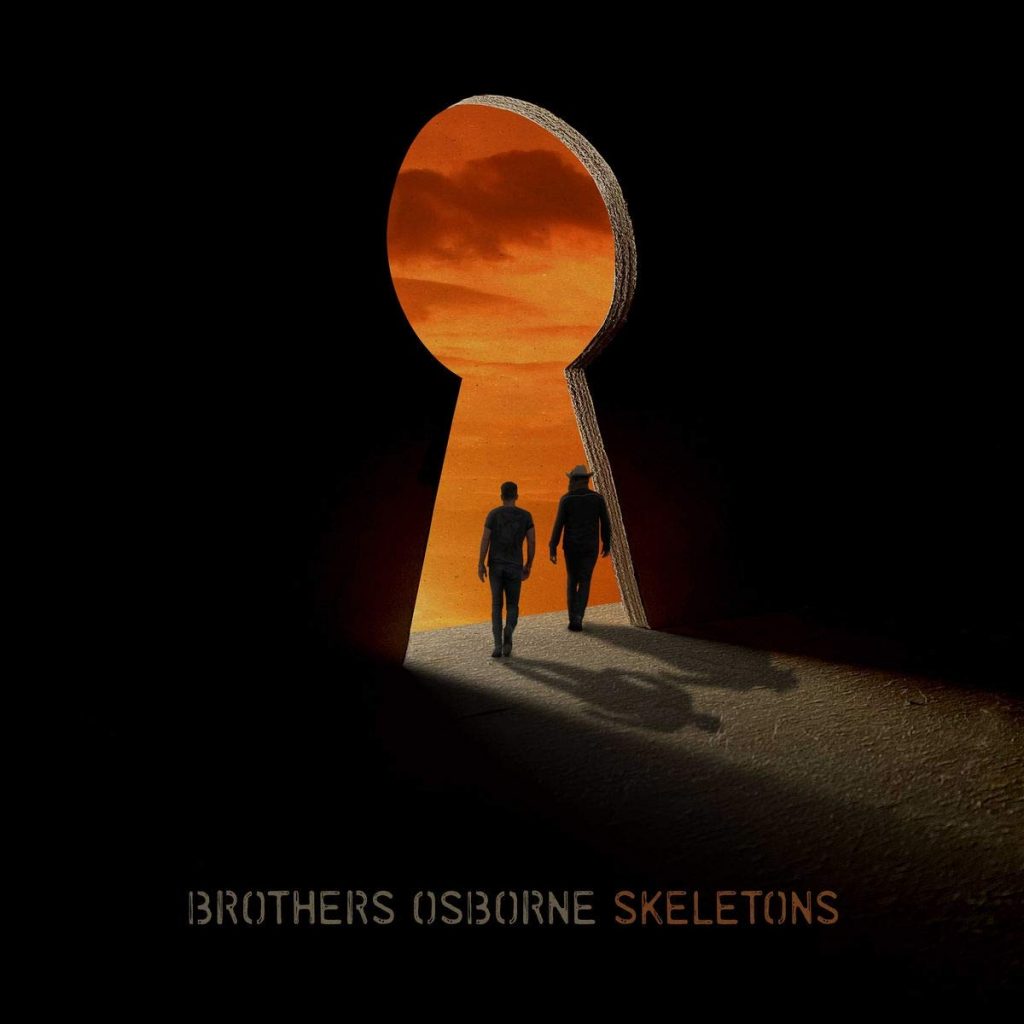The Queer Bro-Country of Brothers Osborne’s ‘Skeletons’

by James Barker, Senior Staff Writer
I must admit that before T.J. Osborne came out in February, Brothers Osborne had not really registered on my radar, and I had written them off as “bro-country.” Since then, I have taken the time to get to know their music better, and have discovered in Skeletons — released a year ago last week — an album that I can relate to.
As a mainstream country album, the sound and production on Skeletons are not a complete diversion from the current palette of country radio, although it features a more energetic, rockier edge than Jason Aldean or Luke Bryan. The instrumental “Muskrat Greene,” as well as its lead into “Dead Man’s Curve,” take the album further into rock territory. “Dead Man’s Curve” also evokes ’70s outlaw country, and marks a welcome return to narrative and storytelling — which, as academic Rachel Skaggs has pointed out, is a notable absence within traditional bro-country.
“High Note” and album closer “Old Man’s Boots” (the latter of which I included in my look on queer masculinity in “Gay-ass Songs”) show the duo’s softer side and knack for catchy melodies. Overall, Skeletons is a cohesive and ultimately satisfying listen for this variety.
“All Night” and “All The Good Ones Are” are the strongest examples of this. These tracks are also particularly notable on re-listening with the lens of T.J.’s coming out. Songs that straight white men have been releasing over the past decade about similar night outs and casual sex have always come without shame or consequences — something that cannot be said of gay men. That T.J. sings these same lines from a queer perspective opens up this heteronormative trend in mainstream country to queer voices and audiences.
“All Night” also has no gender signifiers, which enables this song to be easily reinterpreted with a queer lens. “All the Good Ones Are,” however, does not escape heteronormative framing: “not every woman’s got a way that’s gonna haunt you.” In the future, some songs with male pronouns would be welcome!
Perhaps the finest song on Skeletons is the duo’s most recent single “I’m Not for Everyone.” Lending its title to the Brothers’ recent tour and released post-coming out, the song serves as T.J.’s statement that he is no longer living his life or career in a way to please anyone else. This message is sugarcoated in its soft, easy listening melody and lyrics that describe rather tame social faux pas “I’m the wrong joke at the wrong time,” but in other places the song is a fine example of that good ole country tradition that Steve Goodson and Nadine Hubbs have described as “hillbilly humanism.” “If I was a church,” T.J. sings, “I’d be hanging with the sinners.”
As T.J. has touched on in interviews, he has embraced not being “for everyone” since coming out after the release of Skeletons. Of particular note was his June interview with Esquire, where he spoke about feeling more able to be himself and not worry about whether his body language was “masculine” enough or too “flamboyant.” He also had some wonderful comments about the pressures of misogyny within the queer community, pointing out the toxic preference for “masculine men” and the issue of “people not wanting anyone to know they’re a bottom, because tops are more desirable.”
“Which is hilarious, because who do we fuck if there’s no bottoms?” he famously added.
It may appear that I’m overly determining this album through the prism of T.J’s coming out and his sexuality, and of course Skeletons is worthy of being considered as an album on its own terms. However, country music, like all music, has plenty of songs about love and sex, and straight white male sexuality has always been out in the open, without accusations of its presence reducing artists’ music to any one thing. Queer artists’ sexuality, and arguably more importantly the way their songs represent it, should be treated just the same.
Senior Writer James Barker is a PhD student at Newcastle University UK, currently writing a thesis on Dolly Parton. He wants academic work to be engaging and accessible to everyone and to have a real impact on the ground, not least changing country music to be more inclusive. Contact James at [email protected].